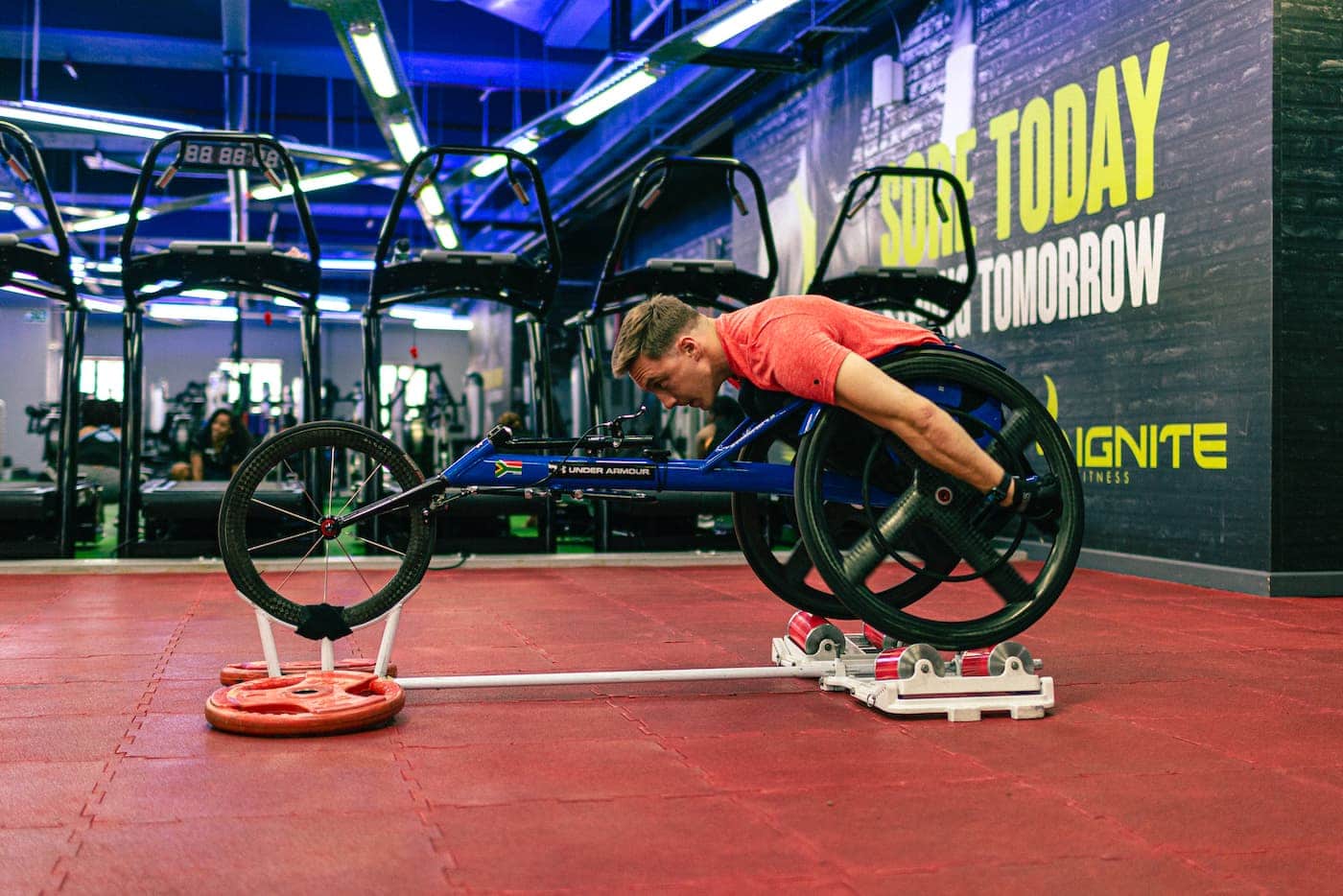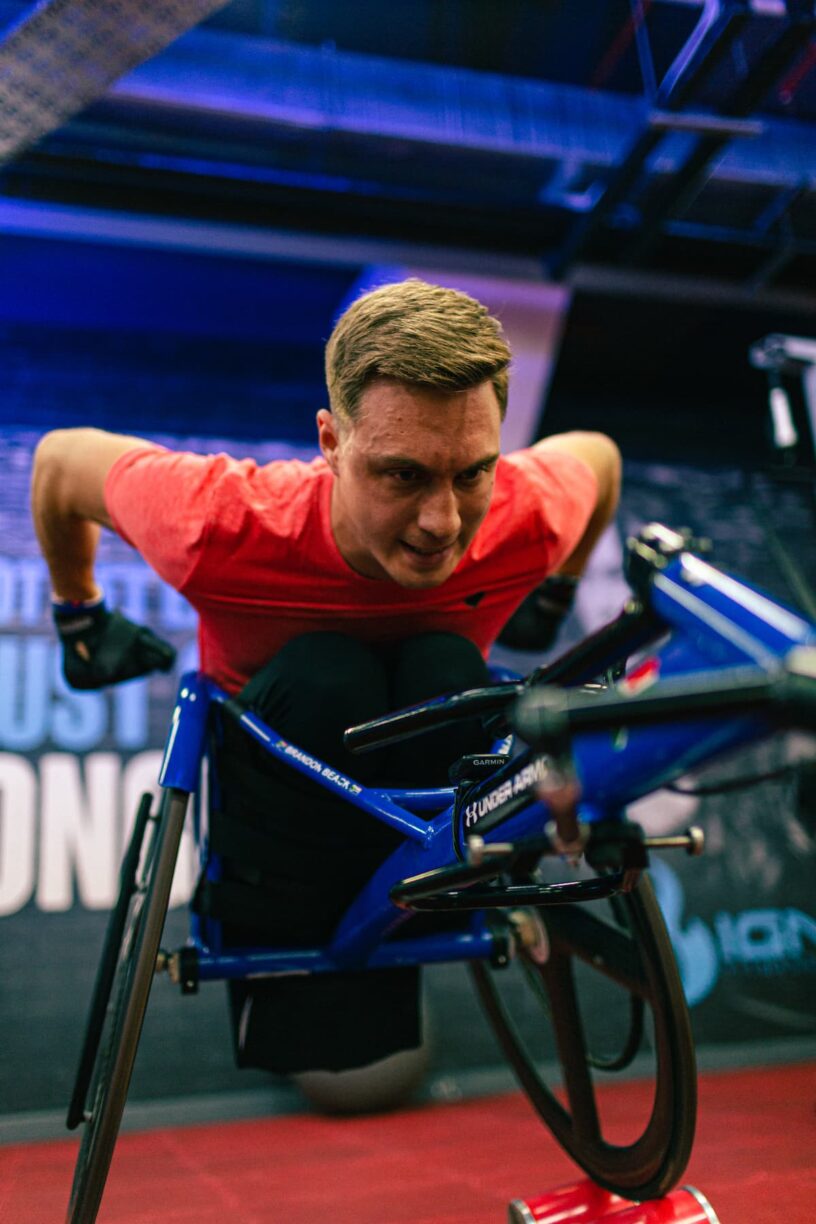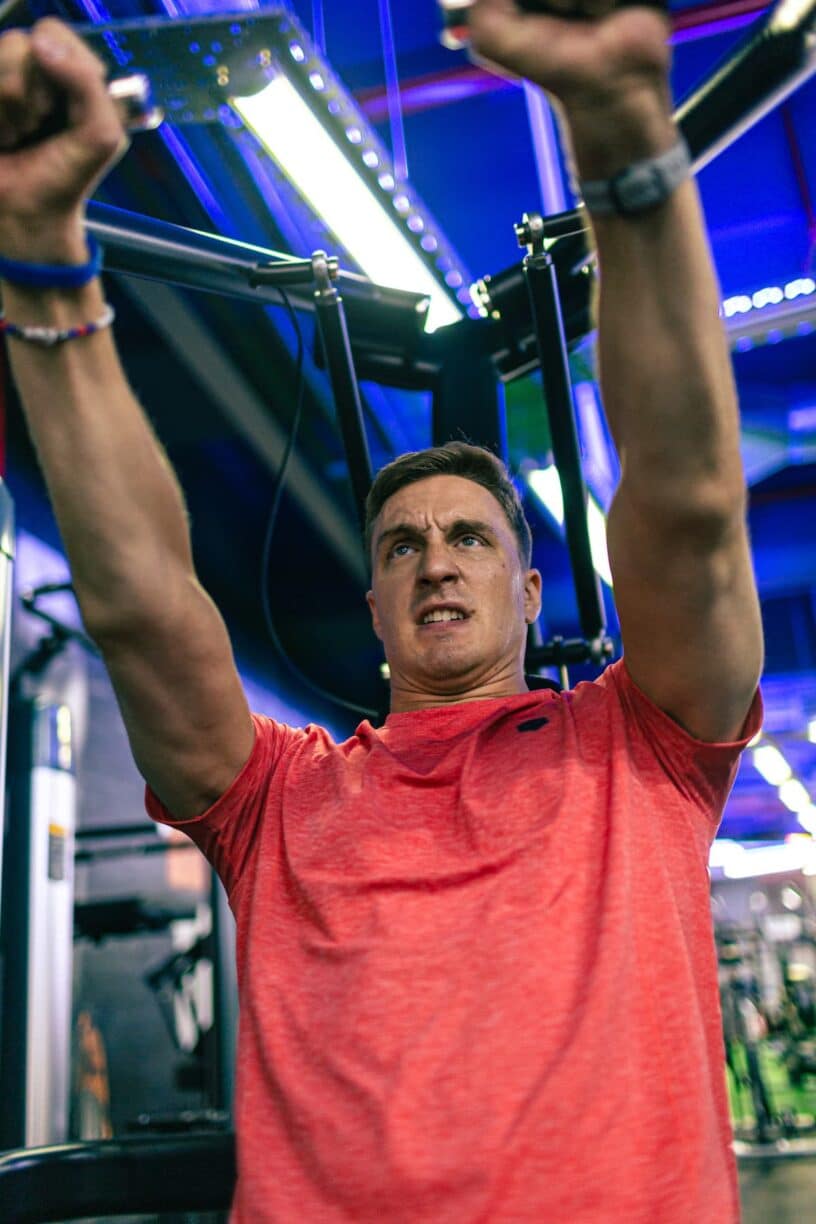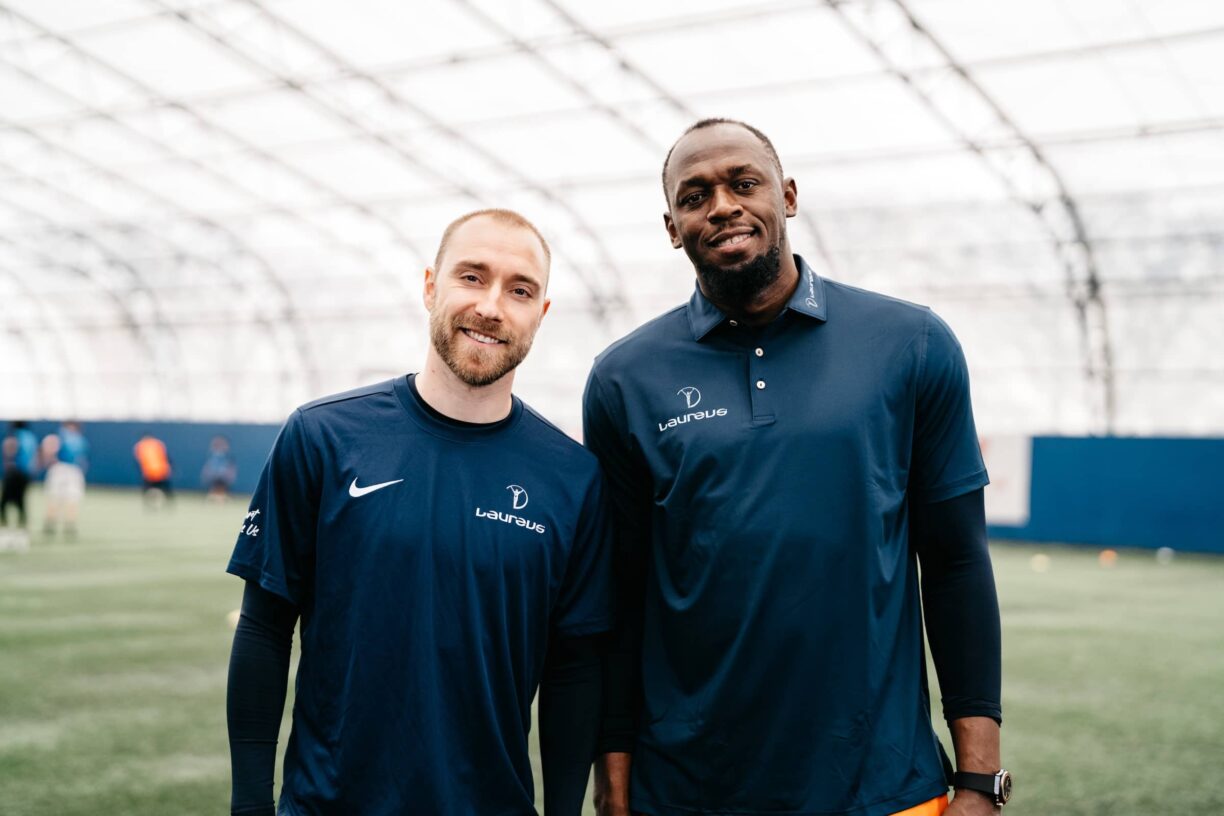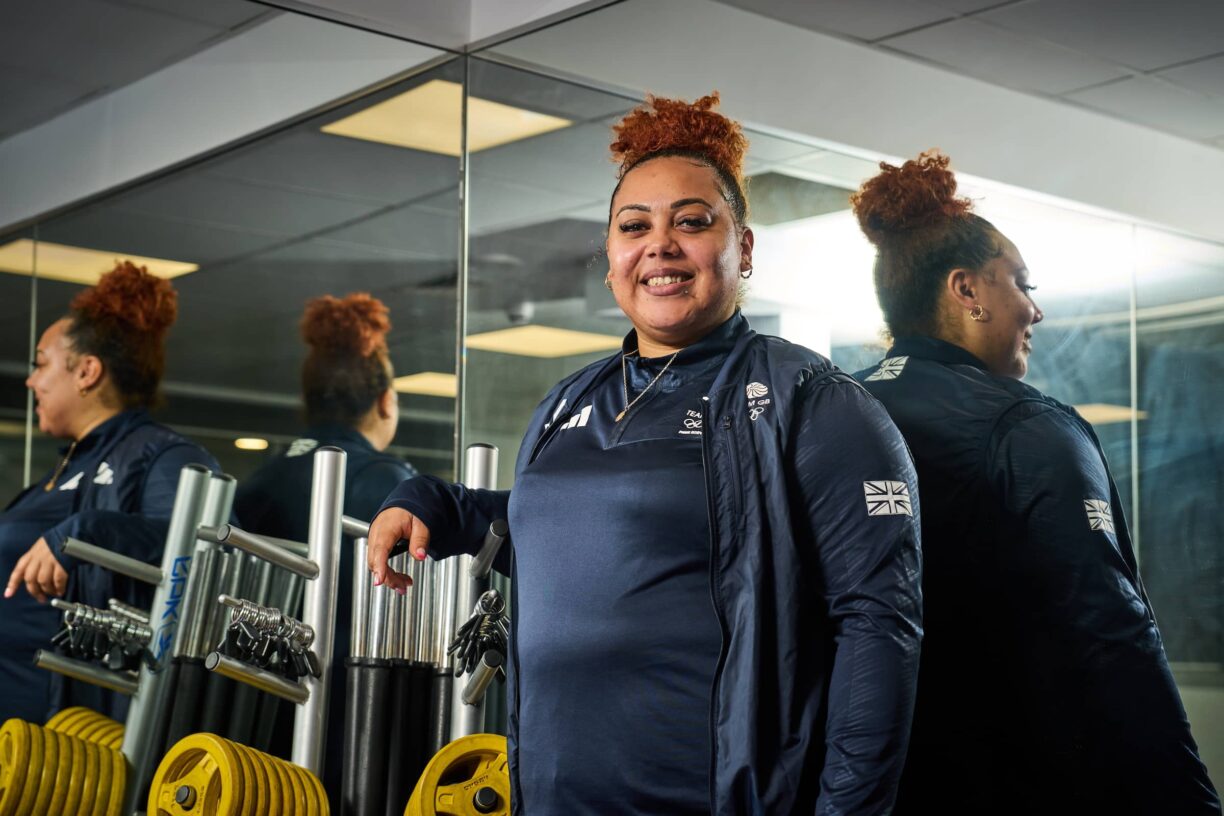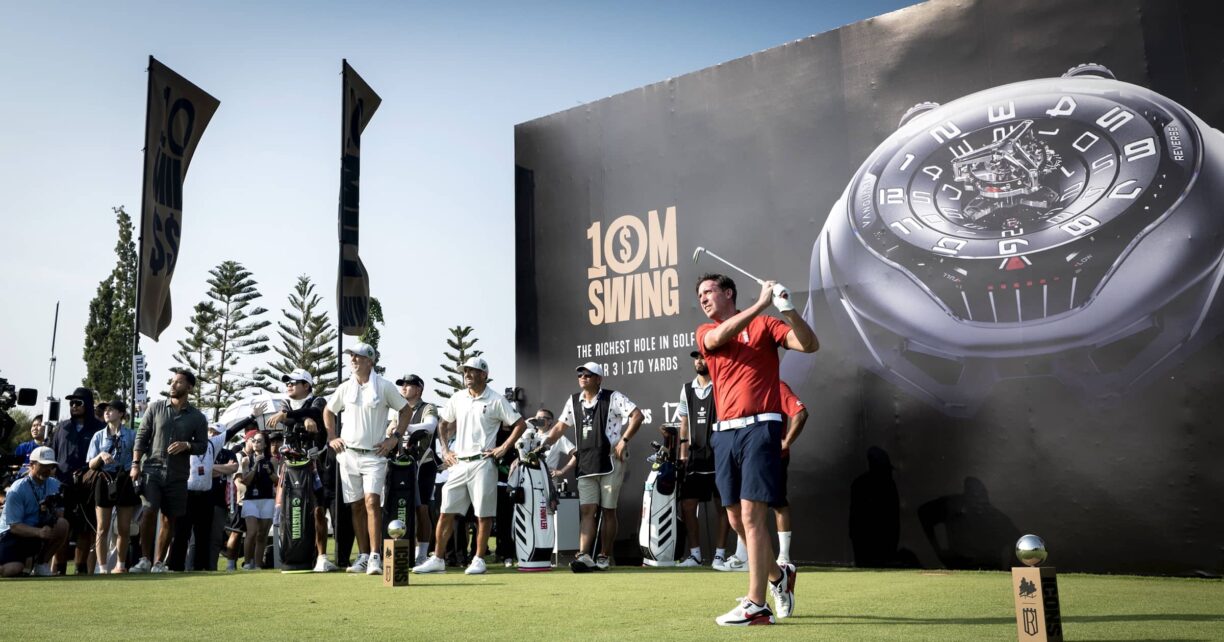Since childhood, Brandon Beack had dreams of becoming an elite gymnast. For years, he trained three to five hours a day, six days a week, and even competed at the national level in his home country of South Africa.
But in 2012, at age 16, one of Beack’s routine training sessions went awry after he erred in a dismount from the parallel bars and sustained an injury that resulted in paralysis from the shoulders down.
Without use of his arms or legs, Beack had to rely on others for help with tasks that were once easy, everyday functions.
And, for an individual as active and independent as Beack, these physical limitations took a toll on his mental wellbeing.
“Most of the battle in my rehabilitation journey was pushing through my mental blocks, self-doubt and disbelief,” he said. “But my recovery taught me that you have to keep pushing and fighting through the pain, because ultimately, it will benefit you.”
Beack attacked his rehabilitation with the discipline and determination that had driven his gymnastics success. It did not take long for his hard work to pay off, as he quickly exceeded doctors’ expectations by regaining use of his upper body.
The breakthrough sparked a revival of Beack’s desire for competition, and in 2015, he began training in the shot put and discus throws, making slow but steady progress in his return to activity.
“Just like with recovery, athletes also have to push themselves through discomfort in order to make improvements,” he said. “These improvements can seem marginal at times, but they can be the difference between first or second place.”
In his debut national track and field tournament, Beack set South African records in both the shot put and discus.
As he continued to build strength in his upper body, however, he fell in love with the speed and excitement of wheelchair racing and made that his primary sport.
Today, Beack holds the South African T52 wheelchair records for the 100 meters, 200 meters, and 400 meters, and ranks 10th in the world for the 100 meters.
While his victories now come on the track instead of in the gym, they mean even more to him given the challenges he has had to overcome to accomplish them. “I may not be competing as a gymnast, but I am competing in a sport that I love just as much, if not more.
The fact that I now have a second chance to achieve a dream that I once thought was lost makes it such a valuable and meaningful experience.”- Brandon Beack
This summer, Beack will take on international competition with the goal of improving upon his past performances.
Regardless of the outcome, he takes pride in the opportunity to represent South Africa on the world’s biggest sporting stage, and in the journey that got him there.
“There is a quote that says, ‘The Olympics is where heroes are made, but the Paralympics is where heroes compete.’
This isn’t said to undermine able-bodied athletes, but to emphasise the strength of Para-athletes, because they live and compete with a disability,” he said. “Disabilities come with a host of complications that would make most people throw in the towel, but we have no choice but to pick ourselves up, fight through it and carry on — there is no other way.
“Imagine the challenges of swimming at Olympic level with no arms, or playing soccer blind, shooting archery with your feet, doing high jump with one leg,” he added.
“The Paralympic movement is an eye-opening, jaw-dropping, humbling and exhilarating experience that I am incredibly grateful to be a part of.”

